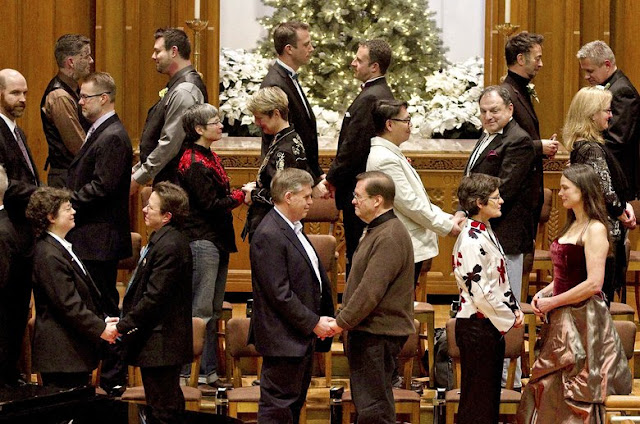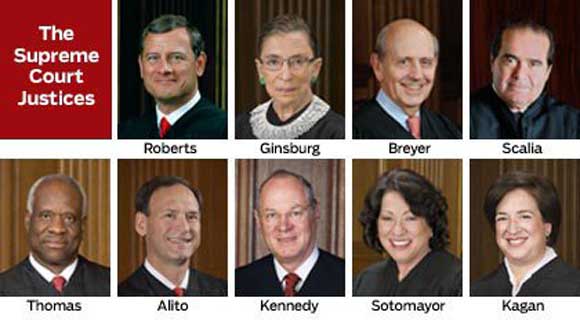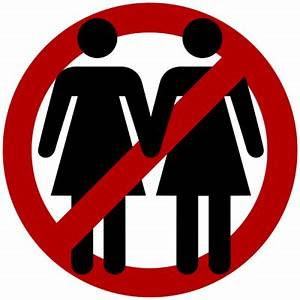A LOT Has Changed Since the 2015 Ruling of Scotus in Obergefell v. Hodges
As of 2013, 38 states banned same sex marriage either by the words found in their Constitution or by legislative enactments. By the end of 2014, that had flipped; 38 states, plus the District of Columbia, had enacted laws permitting gay marriage. Click Here to read a state by state history of legislation making gay marriage legal.
Why Did So Many States Make Gay Marriage Legal in 2014?
By October 2014, many state and appeals courts had issued decisions declaring state bans on gay marriages to be unconstitutional. Decisions from courts in Utah, Virginia, Indiana, Oklahoma and Wisconsin had wound their way to U.S. Supreme Court, which had to decide whether it would consider the matters.
On October 6, 2014, the U.S. Supreme Court opted not to hear appeals on numerous same-sex marriage cases. This, in effect, meant that gay marriage was now unequivocably legal in 27 states - 19 of which already had laws permitting such marriages, and 8 of which had laws banning such nuptials that were effectively overturned by the Scotus refusal.
Effective October 6, 2014, those bans became illegal.
In between October 7 and December 6, 2014, the following additional 11 states made same sex marriage legal:
Idaho – October 7, 2014
Nevada – October 8, 2014
West Virginia – October 9, 2014
North Carolina – October 10, 2014
Alaska – October 12, 2014
Arizona – October 17, 2014
Wyoming – October 17, 2014
South Carolina – November 12, 2014
Kansas – November 12, 2014
Montana – November 19, 2014
Washington – December 6, 2014
This meant that by January 1, 2015, there were 38 states, plus the District of Columbia, that had state laws in place securing the right to gay marriage.
Scenes Like This Were Played Out in Virtually Every State Within Days of
Gay Marriages Bans Being Lifted or Same Sex Marriages Being Declared Lawful
Here Are Some Gay Marriage Firsts and Trivia
Did you know? On May 17, 2004, Massachusetts became the first state to make same sex marriage legal,
Did you know? Iowa was the first Midwestern state to make gay marriage legal, doing so on April 27, 2009. Minnesota followed in 2013.
Did you know? Pennsylvania was the last state in the Northeast to make gay marriage legal, doing so on May 20, 2014.
Did you know? Most states allow gay marriage as a result of a court decision (i.e. one striking down legislation banning gay marriage) than by popular vote or legislative amendment.
Did you know? Vermont was the first state to make same sex marriage legal vis legislation, when it passes such a law on September 1, 2009.
SCOTUS Circa June 2015
The Supreme Court's 2015 Decision in Obergefell v. Hodges Declared That is Was Unconstitutional for States to Ban Same Sex Marriage
Then, on June 26, 2015, the United States Supreme Court issued its landmark decision in Obergefell v. Hodges, which declared it was unconstitutional for states to pass laws banning same sex marriages. To the extent that its 2014 refusal to hear the aforementioned appeals left any question, Obergefell effectively eliminated any doubt.
As of June 26, 2015, any state laws that declared gay marriage illegal became null and void. In the ordinary course, one would expect that state legislatures that still had laws on the books declaring same sex marriage illegal would have then undertaken the ministerial act of repealing any laws that banned same sex marriage.
Few have.
The Battle May Not Be Over Yet
But Some Things Have Remained the Same....12 States Continue to Have State Laws that Ban Gay Marriage in 2021
While all of the extant Constitutional and/or legislative bans on gay marriage became null and void as of the date Obergefell was decided, according to one report, the following states still have laws on the books that ban gay marriage as of 2021:
- Arkansas
- Georgia
- Kentucky
- Louisiana
- Michigan
- Mississippi
- Nebraska
- North Dakota
- Ohio
- South Dakota
- Tennessee
- Texas
The thinking is that these states, while perhaps recognizing Obergefell, have refused to repeal pre-Obergefell statutes that ban same-sex marriages (even though such bans are defunct given Obergefell). One must surmise these states are hoping that one day SCOTUS will overrule Obergefell, thereby reviving the efficacy of their bans.
None of these states were part of the 2014 ban challenges that the Supreme Court refused to hear, so they were not directly affected by that decision, and have simply allowed their laws to remain unchanged even after Obergefell.
What Has Happened in States Opposing Gay Marriage Since the Supreme Court's 2015 Obergefell decision Holding That Banning Same Sex marriage is Illegal?
States Across the US Still Cling to Outdated Gay Marriage Bans, is a February 2020 article by Julie Moreau of NBC News covering a decision in September 2020 by the Virginia legislature to repeal two old laws banning same sex marriage. The article traces the history of state laws banning same same marriage, tracks post-Obergefell disputes involving public officials who refused to issue marriage licenses to gay couples in states such as Kentucky, Alabama and Texas and explores some states' post-Obergefell efforts to enact legislation to get around the decision (and hopefully find their way to the newly-configured SCOTUS, where the hope is Obergefell will be overruled). It also contains the following interesting tidbits concerning America's current thinking on the subject:
More than 10 percent of LGBTQ adults were legally married in June 2017, just two years after the Obergefell ruling, according to Gallup, and the number is likely even higher now. In addition, public opinion has shifted strongly in favor of same-sex marriage, with a 2019 Gallup poll finding 63 percent of Americans approve of such unions.
One of the most common tactics is to pass a law that allows officials to refuse performing gay marriages on the grounds of religious beliefs. One day, and likely not in the too distant future, such a case will reach the newly-configured, far more conservative Supreme Court. Typically, the Court is zealous in its refusal to overturn SCOTUS precedent (especially recent precedent). However, the current Court has already demonstrated a willingness to do so.
It is quite possible that issues related to the legality of same-sex marriage in America, once thought settled by the Obergefell decision, could be revisited in the coming years.
Just For You, Dear Reader!
HERE ARE SOME OTHER ARTICLES YOU MAY FIND WORTHWHILE:
UPDATE on Recent and Pending Discrimination Matters Pertaining to LGBT-Rights from SCOTUS and EEOC
United States Employment and Discrimination Laws - An Overview by Pennsylvania Employment Lawyer
What is an ILLEGAL Hostile Work Environment? Workplace Bullying Alone is Not Illegal in Pennsylvania
Employee Complaints and Retaliation - What is Legal and What is Illegal




